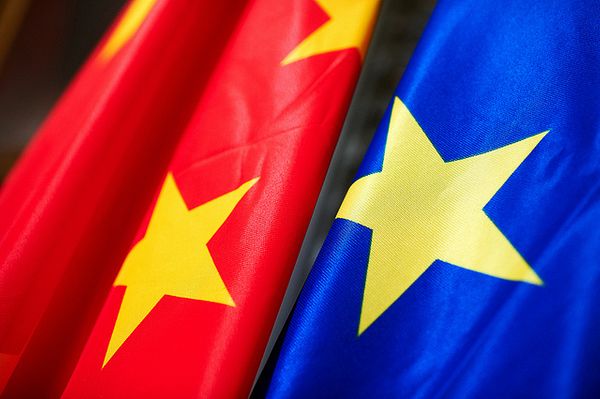
Members of the European Parliament have outlined the requirements that must be met before the legislature approves the EU-China Comprehensive Investment Treaty (CAI). The conditions are outlined in a draught report prepared by the European Parliament’s foreign affairs committee, which calls for using the CAI as a leverage tool to improve human rights protection and civil society support in China.
A timetable for China’s ratification and implementation of key labour laws, as well as concrete measures to end human rights violations against the country’s Uyghur minority, are among the pre-ratification commitments listed in the report. It also calls for China to reaffirm its commitment to Hong Kong’s international obligations.
The resolution also calls for a unilateral ban on the import of products derived from forced labour, child labour, or any other form of modern slavery, as well as legal investigations into alleged genocide and crimes against humanity in Xinjiang.
Other democratic players such as Japan, India, South Korea, Australia, and New Zealand have been urged to cooperate more closely by European leaders. They have advocated for combining the strength of global liberal democracies in order to respond to China’s shifting role and growing influence in multilateral institutions.
In light of China’s strong economic growth and ambitious foreign policy agenda, the leaders’ resolution strongly urges the bloc to reconsider its strategy for dealing with the country. The members of the committee denounced China’s ruling regime for its poor human rights record.
The members of the 27-nation bloc have proposed a new EU-China policy based on six pillars in the draught report, calling for a more assertive strategy against China: Opening a dialogue on global challenges; using economic leverage to engage on human rights issues; analysing threats and challenges; forming alliances with like-minded partners; fostering open strategic autonomy and defending core European interdependencies.
The members also demanded that regular human rights dialogues be held, as well as a thorough benchmarking of bilateral progress. They also demanded the establishment of a channel to communicate with China about possible ways to improve global pandemic preparedness.
Members of the European Parliament also requested China’s assistance in conducting an independent investigation into the causes of the coronavirus disease (Covid-19).
Concerning trade tensions, European leaders called for the lifting of Chinese government counter-sanctions against EU entities and individuals, whom Beijing accused of “severely harming its sovereignty and interests and maliciously spreading lies and disinformation.” The sanctions were imposed in March against ten people and four entities in response to a similar EU action against a Chinese entity and individuals over alleged human rights violations in Xinjiang.
The draught report will now be put to a vote by the entire European Parliament.





